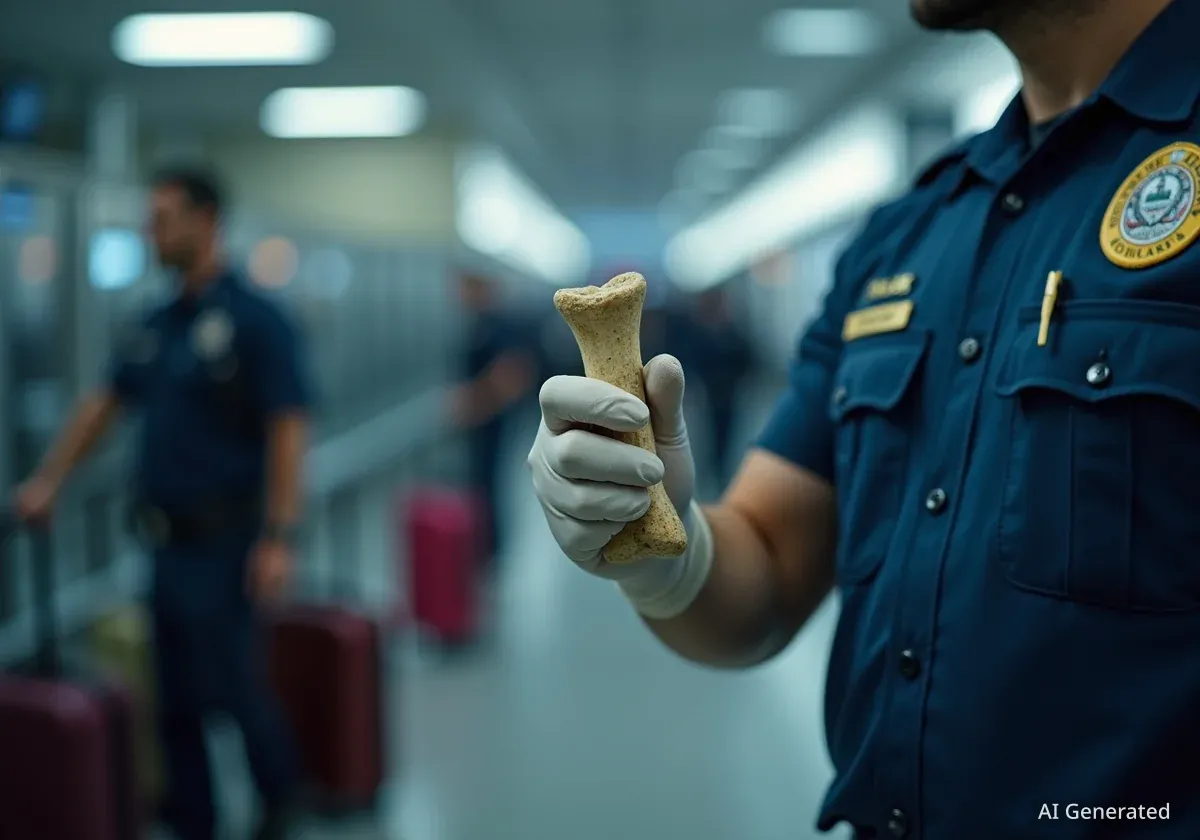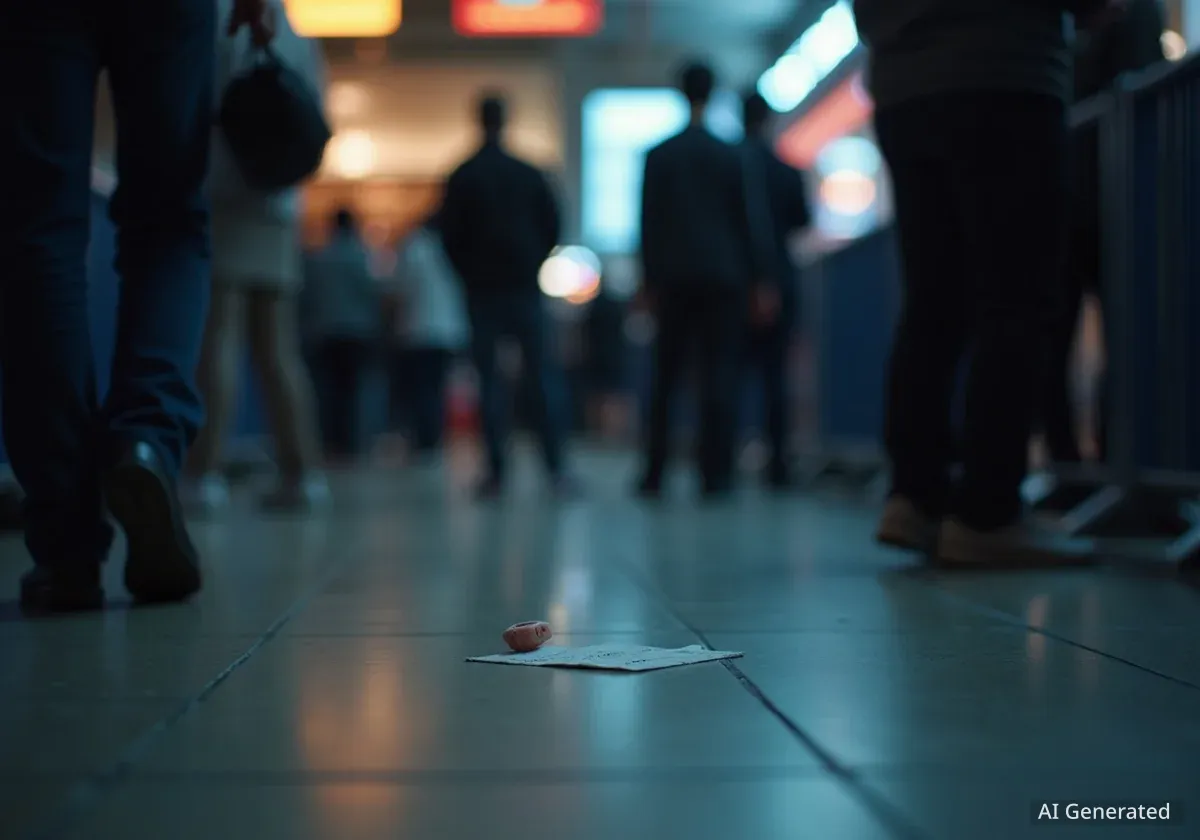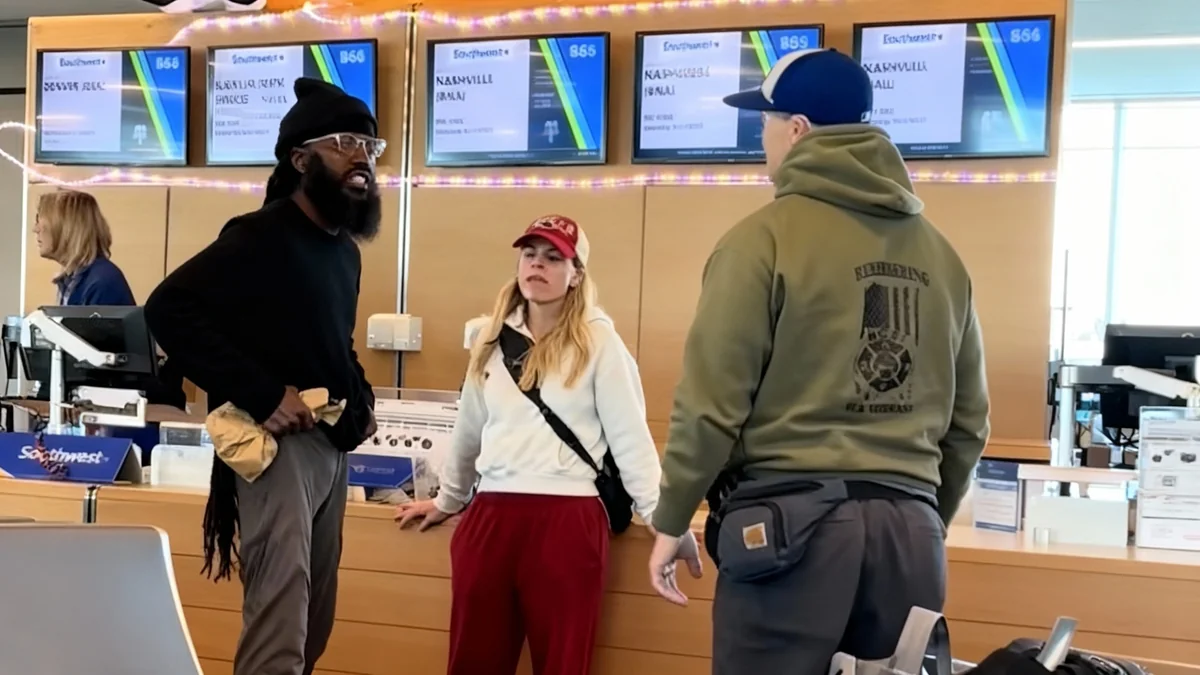U.S. Customs and Border Protection (CBP) officers at Tampa International Airport recently intercepted what appeared to be human bones during a routine baggage inspection. The discovery was made when an international passenger attempted to enter the United States with undeclared items, including the bones, which the individual stated were intended for ritualistic purposes.
The incident highlights the ongoing vigilance of airport security and customs officials in preventing the entry of prohibited items, especially those that pose potential health risks or violate import regulations.
Key Takeaways
- CBP officers found apparent human bones during a bag check at Tampa International Airport.
- The passenger claimed the bones were for ritual use.
- Officials also found undeclared cigars and prohibited plants.
- The bones were seized and destroyed due to health concerns.
Details of the Airport Discovery
The discovery took place last week during a standard inspection at Tampa International Airport. Customs and Border Protection officers were processing an international passenger when their luggage underwent a routine check. This process led to the unearthing of suspicious items.
Carlos Martel, who serves as CBP’s Miami-Tampa field operations director, shared images of the confiscated items. These photos showed what appeared to be fragments of a skull along with other small bones. The bones were found wrapped in aluminum foil, suggesting an attempt to conceal them.
Quick Fact
CBP officers conduct approximately 1 million passenger inspections daily across U.S. ports of entry, including airports, seaports, and land borders.
Passenger's Initial Claims and Subsequent Findings
Initially, the passenger declared only 10 cigars. However, a more thorough inspection by agriculture specialists uncovered additional undeclared items. These included more cigars than stated, as well as plants that are prohibited from being imported into the U.S.
Crucially, inside a duffel bag, wrapped in foil, officials found the apparent human bones. This finding significantly altered the nature of the inspection, moving beyond simple undeclared goods to a more serious customs violation involving potentially hazardous biological material.
"The passenger initially claimed to be transporting just 10 cigars, but agriculture specialists found undeclared cigars, prohibited plants, and a duffel bag wrapped in foil with the bones inside," Director Carlos Martel stated.
Purpose and Seizure of the Bones
When questioned by officials, the passenger provided an explanation for transporting the bones. The individual stated that the bones were intended for use in various rituals. This explanation, while shedding light on the passenger's intent, did not negate the illegality or potential danger of the act.
Customs and Border Protection takes the import of biological materials very seriously, especially when they are undeclared and of unknown origin. Such items can pose significant public health risks, including the transmission of diseases or pathogens.
Context on Import Regulations
The U.S. has strict regulations regarding the import of biological materials, including human and animal remains. These rules are in place to protect public health and prevent the spread of infectious diseases. Travelers must declare all biological items and often require special permits for their import.
Health Risks and Destruction
Due to the serious health risks associated with undeclared biological materials, particularly human remains, the bones were immediately seized. Director Martel confirmed that the bones were subsequently destroyed. This action is standard protocol when such items are found to ensure public safety and prevent any potential biological hazards.
The destruction of the bones was a necessary step to eliminate any risk they might have posed. This swift action underlines the commitment of CBP to safeguarding the nation's borders against threats that could impact public health.
Legal Ramifications and Enforcement
The exact legal consequences for the passenger remain unclear. It has not been publicly confirmed whether the individual faced arrest, significant fines, or other penalties for attempting to smuggle the prohibited items into the country. CBP typically assesses penalties based on the severity of the violation and the nature of the items involved.
TravModo reached out to CBP for further details regarding the passenger's fate but did not receive an immediate response. Investigations into such incidents can be complex, often involving multiple agencies and detailed legal assessments.
Did you know?
In the last year, CBP agriculture specialists intercepted over 270,000 prohibited plant, meat, and animal product shipments nationwide, preventing potential agricultural and public health threats.
Broader Implications of Smuggling Incidents
This incident is not isolated. Airports across the United States frequently encounter travelers attempting to bring in unusual or prohibited items. For example, a previous report detailed airport agents confiscating over 60 pounds of rat and primate meat in Detroit. These instances highlight the diverse range of items that individuals attempt to smuggle and the constant challenges faced by customs officials.
The rigorous inspection processes at airports are essential for national security and public health. They serve as a critical defense against the entry of dangerous goods, illegal substances, and potential biohazards. Travelers are always advised to be aware of and comply with all customs regulations to avoid legal issues and ensure smooth travel.
The Role of Airport Security and Customs
Airport security and customs personnel play a vital role in protecting national borders. Their duties extend beyond identifying illegal narcotics or weapons. They are also responsible for intercepting agricultural pests, prohibited food items, and biological materials that could introduce diseases.
The training and expertise of agriculture specialists are crucial in these situations. They are equipped to identify undeclared plants, animal products, and other biological matter that could pose risks to the U.S. ecosystem or human health. The Tampa incident is a clear example of their effectiveness.
- Advanced Screening Technologies: Airports use a combination of X-ray machines, K-9 units, and manual bag checks.
- Agriculture Specialists: These experts identify pests and diseases in imported goods.
- Public Cooperation: Passengers are encouraged to declare all items to avoid penalties.
The vigilance of these officers ensures that incidents like the one at Tampa International Airport are detected and managed effectively, preventing potential harm to the public and the environment.





